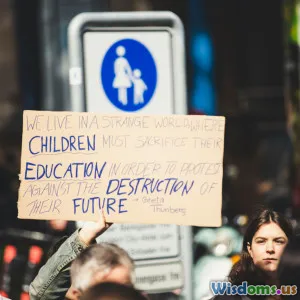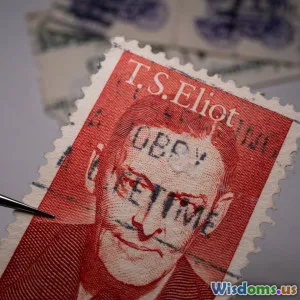
Predicting the Future Role of Secret Societies in World Politics
8 min read Explore how secret societies may influence future global politics with analysis and historical context. (0 Reviews)
Predicting the Future Role of Secret Societies in World Politics
Introduction: Unmasking the Hidden Players
For centuries, secret societies have stirred the imaginations of conspiracy theorists and political analysts alike, acting as enigmatic forces behind many pivotal events in world history. Despite their covert nature, groups like the Illuminati, Freemasons, and other lesser-known organizations have often been credited—or blamed—for shaping geopolitical outcomes. But as the global landscape transforms through increased transparency, technological advances, and shifting power centers, what might the future hold for these clandestine networks? This article unpacks their historical influence, examines current trajectories, and offers compelling predictions on how secret societies could impact world politics in the coming decades.
Historical Foundations and Influence of Secret Societies
Notable Secret Societies and Their Political Footprints
The Freemasons, dating back to the early 18th century, played notable roles in revolutionary movements such as the American and French Revolutions. Their principles of liberty, equality, and fraternity attracted influential political leaders, embedding foundational ideas of democracy and governance.
Similarly, the Illuminati, a Bavarian secret society founded in 1776, promoted rationalism and opposed religious and state oppression. Although disbanded after a decade, rumors about its lingering influences persist, often linked to conspiracy theories relating to global control.
Other groups like the Skull and Bones Society at Yale, founded in 1832, have notoriously numbered members who become key figures in politics and finance, including several U.S. presidents. These historical examples demonstrate that secret societies were not merely social clubs but potentially impactful political actors working behind the scenes to shape ideology and leadership.
Mechanisms of Influence: Beyond Conspiracy
Secret societies often operated using exclusive membership, encryption of knowledge, and ritualistic practices to solidify group cohesion and protect agendas. Their ability to coordinate elite alliances across national borders allowed for shared political and economic interests that could be advanced covertly.
Though speculation about world domination is largely unfounded, it’s undeniable that these societies facilitated networks of influence. For example, membership in such societies often opened doors to lobbying, policy-making, and informal diplomacy that conventional structures overlooked.
Modern Transformations: Secret Societies in a Digital Era
Technological Advances and Transparency Challenges
With the internet, social media, and investigative journalism, the era of total secrecy faces significant hurdles. Information leaks, whistleblowers, and gatekeepers of authoritative transparency have gained a foothold, exposing parts of these once opaque groups.
However, adapting to this environment, secret societies have increasingly shifted tactics. Using encrypted communication platforms and decentralized networks, newer groups attempt to maintain confidentiality while harnessing technology for coordination and fund-raising.
The Rise of New Organizations with Political Aspirations
Beyond traditional historic societies, recent decades have seen the emergence of both online and offline groups with secretive elements. These include think tanks, elite clubs, or loosely connected ideologically driven networks seeking to influence policy discreetly.
For example, the Bilderberg Group, a confidential annual conference attended by political leaders, business executives, and academics, operates largely out of public view. While not a secret society in the strictest sense, it exemplifies how influential networks wield behind-the-scenes power in global governance.
Predicting Future Roles: An Analytical Outlook
Increased Scrutiny and Public Awareness
As transparency becomes a societal demand, secret societies' overt influence at the highest political levels is likely to wane. Public institutions are bolstering regulations around lobbying and political financing. Additionally, whistleblower protections and freedom of information laws further disrupt clandestine operations.
Nevertheless, subcultures that prioritize exclusivity and esoteric knowledge may adapt by shifting their presence to less controlled spheres, such as digital cryptocommunities or blockchain-driven governance forums.
Secret Societies as Catalysts for Alternative Diplomatic Channels
Though nation-states continue formal diplomacy, secret societies may evolve into informal backchannels facilitating dialogue between conflicting parties. Historical precedents exist where discreet communication prevented escalations during tense international standoffs.
In the future, these groups might leverage their transnational membership—spanning politics, business, and culture—to act as mediators or influencers shaping world order discreetly but meaningfully.
Influence on Emerging Technologies and Policy
In arenas like artificial intelligence, biotechnology, and cybersecurity, secretive networks could exert leverage by granting access to innovation and guiding ethical frameworks. Membership in cutting-edge science circles blends with political power to foster agendas in global technology governance.
For instance, members with dual roles in secret societies and political offices might clandestinely steer regulatory policies that favor certain innovations, preserving competitive edges or addressing societal apprehensions.
The Ethical Imperative and Potential Risks
The hidden nature of these societies often raises concerns about democratic accountability. In the worst cases, unchecked influence might serve narrow interests, eroding public trust and exacerbating inequalities.
Future developments should focus on balancing the question of secrecy: how to protect legitimate private deliberation or cultural practices without allowing covert actions that undermine transparency, fairness, or social well-being.
Conclusion: Navigating the Enigma of Secret Societies
Predicting the exact trajectory of secret societies' roles in world politics demands a nuanced understanding of history, sociology, and evolving technology. While increased transparency and democratic expectations may curtail their overt political dominance, their adaptation through technology and new structures indicates they won’t vanish anytime soon.
Rather than viewing secret societies merely as conspirational shadows, it is more productive to analyze them as complex networks capable of both positive mediation and risky manipulation. Staying vigilant, supporting open governance, and encouraging ethical discourse around covert influence can help societies harness the potential benefits while mitigating threats.
Understanding these hidden actors remains essential for anyone interested in the intricate web of global political power today and in the future.
Rate the Post
User Reviews
Popular Posts



















